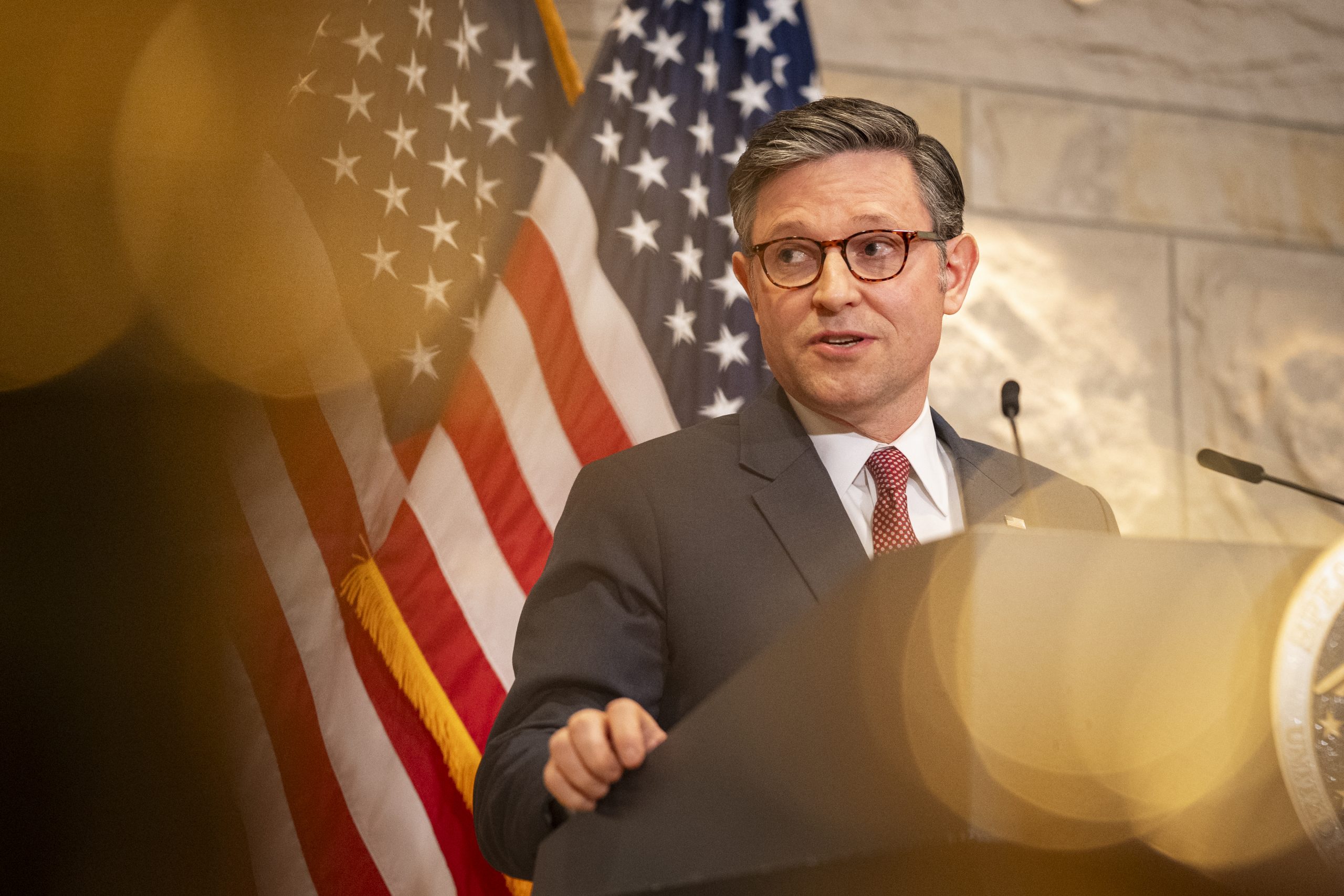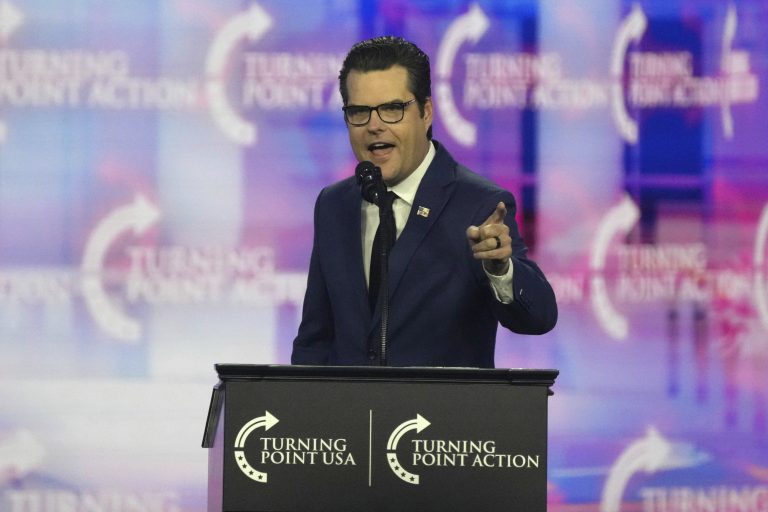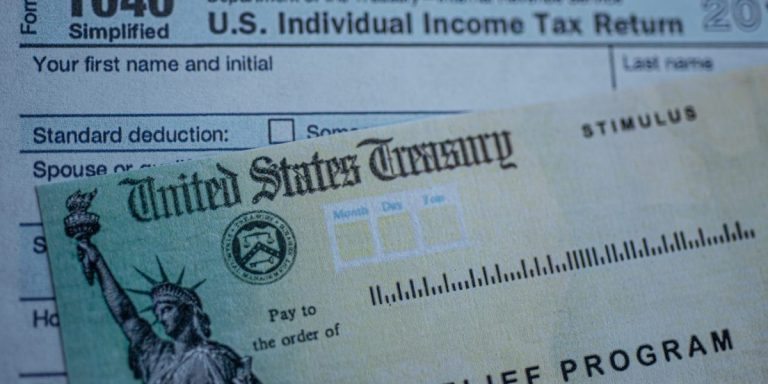
Speaker Mike Johnson’s efforts to pass a short-term spending bill before Friday’s shutdown deadline should’ve been fairly straightforward. Instead, it has turned into yet another test of his ability to steer a chaotic conference as he embraces an ambitious agenda next year.
Johnson and his team are working to minimize GOP defections while keeping enough Democratic support, since he can’t pass the funding extension with only Republican votes. But a demand for farm aid from Republicans in agriculture-heavy districts is complicating the negotiations, prompting Democrats to ask for additional concessions and fueling conservative ire over increased spending.
Those hardliners likely wouldn’t vote for a stopgap spending bill regardless, but if they’re angry enough it could cause problems for Johnson on Jan. 3, when he will need nearly unanimous GOP support in order to maintain the speakership.
Johnson already tried to appease ultraconservatives, but the move inflamed the farm-district Republicans; he shot down their ask last Tuesday to fund the economic aid via conservation money in Democrats’ partisan Inflation Reduction Act. Johnson and Senate Minority Leader Mitch McConnell held firm on that position in the Friday night talks. That triggered those GOP lawmakers to publicly and privately threaten to vote against the final funding stopgap if it doesn’t include billions in economic assistance for farmers.
“It’s a must-have,” said House Agriculture Chair G.T. Thompson. He and others argue they need to pass additional economic aid to protect struggling farmers against a new wave of bankruptcies and financial pain in rural America, where the majority of voters supported Donald Trump.
Thompson said that he was “pleased with the conversations” happening now, after leadership talks over the matter blew up overnight on Dec. 13. Johnson’s team spent the weekend quietly trying to hold off a massive wave of farm district Republican opposition to the funding measure. Appropriations Chair Tom Cole (R-Okla.) said Monday that the “differences are narrowing.”
“We’re working through it. I’m optimistic,” he added.
Still, it’s a bad sign for Republicans in the next Congress. Unlike a funding punt, negotiations over ambitious, party-line bills on the border, taxes and energy are already expected to get extremely complicated. Despite Trump coming to the White House and Republicans taking control of the Senate, Johnson will still have a tough job as he navigates the demands of a diverse conference on several high-priority campaign issues with virtually no room for error.
“Next year is going to be fun,” a GOP aide involved in the funding talks said wryly, granted anonymity to speak candidly.
For now, GOP leaders have told lawmakers that Johnson wants to pass the entire government funding measure and separate supplemental disaster package together, via a process called suspension. But that process requires a two-thirds majority, which means Johnson needs all the backing he can get, not just from his own party, but also from Democrats. And Johnson’s antagonists will be watching closely to see if he can get a majority of Republicans to vote for the ultimate spending deal, which is viewed as a key test of leadership’s support within the GOP ranks.
Hardliners are already largely opposed to the farm bill extension that leaders want to attach to the stopgap, arguing Congress needs to slash farm subsidies and other spending. That group is now leaning on Johnson to reject any new spending in the funding stopgap, as his speakership hangs in the balance.
“Adding things to the farm bill, I know farmers are hurting, but where is this coming from?” Freedom Caucus member Ralph Norman (R-S.C.) said.
GOP leaders already weren’t counting on several of those conservatives to vote for the funding deal, as they typically take a principled stance against stopgaps. If Johnson loses more GOP votes, he’ll have to bend to more Democratic demands to push the package through Congress before Friday’s deadline.
Congressional leaders on Monday were circling a final funding deal with $10 billion in economic aid for farmers as part of the agreement, possibly up to $12 billion depending on what Republicans agree to on Democratic demands in return. House Majority Leader Steve Scalise (R-La.) told reporters Monday morning that leaders may be able to release the text of the massive bill in the coming hours, but he stressed that nothing was final yet.
“No white smoke yet, still working through the final pieces,” Scalise said late Monday morning.
There’s another demand Johnson is trying to balance. Farm district Reps. Zach Nunn (R-Iowa) and Don Bacon (R-Neb.) are behind an effort to insert a waiver into the spending package that would allow year-round E15 ethanol fuel sales. Conservatives, who overwhelmingly oppose ethanol subsidies, are furious at that prospect.
Trump himself has a complicated history balancing support for the ethanol and oil industries.
Rep. Chip Roy (R-Texas), an outspoken conservative who typically opposes stopgap funding bills and hasn’t said how he will vote on the speakership, said Monday that the ethanol deal and other provisions should not be passed in the spending package.
“Call me crazy, but we should reduce the deficit and not pass stupid policies,” Roy, a member of the Freedom Caucus, said on X.



























+ There are no comments
Add yours